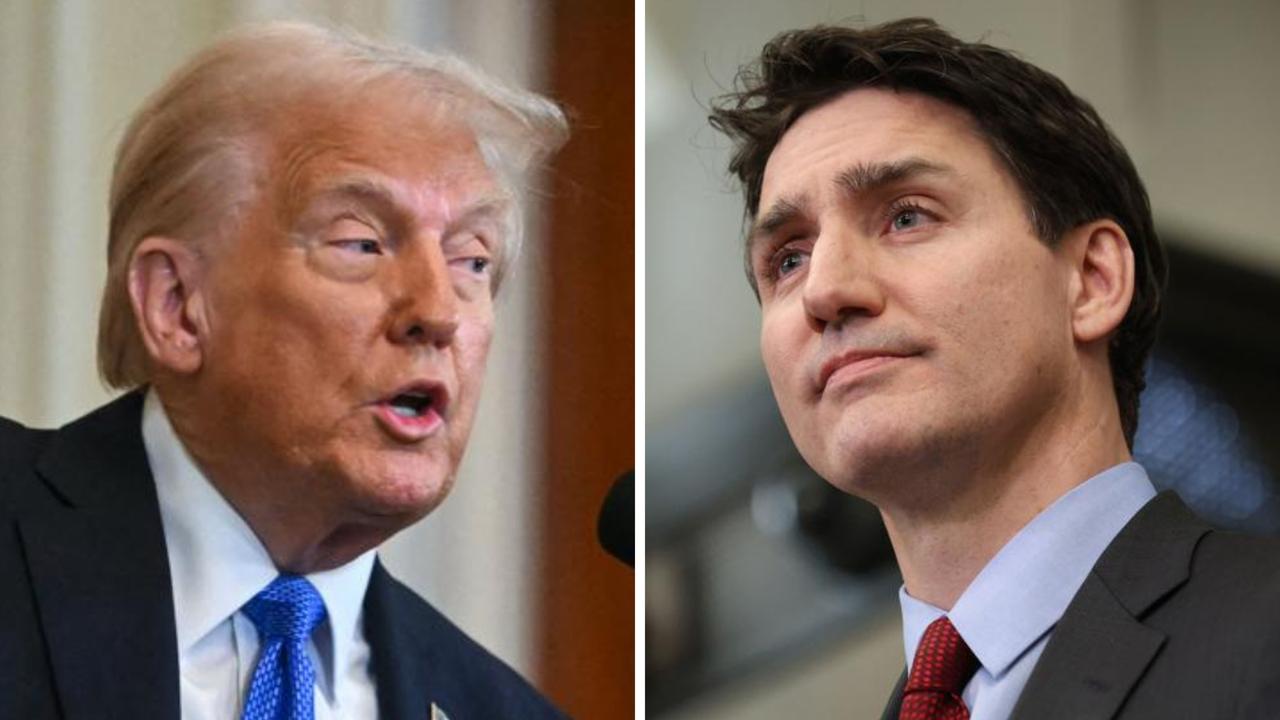Twenty-hour debate comes to inevitable conclusion as Government and Greens use numbers
AFTER 20 hours of debate and tomfoolery, the “Sleepless in the Senate” ordeal is over, ending Canberra’s longest stand-off in 23 years.
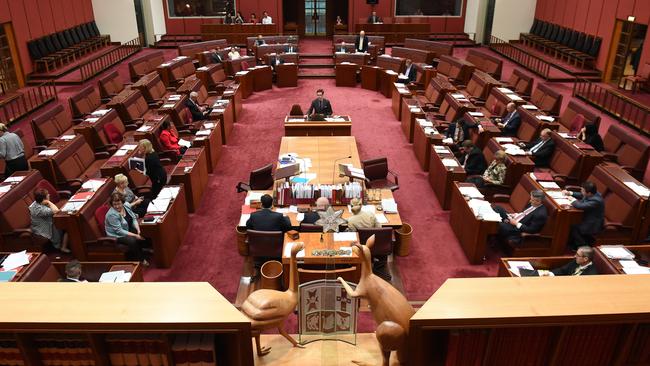
THE Senate today finally bowed to the glaringly inevitable and backed voting reform after the longest parliamentary tussle since passage of Native Title laws in 1993.
And with the House of Representatives today cleared the way for an early election.
The “Sleepless in the Senate” ordeal took up more than 20 hours of debate and tomfoolery. About 33 divisions were called — all of them going the same way.
The exhausting all-nighter saw fart jokes, sneering fashion commentary, discourses on medical procedures and even the appearance of a senator in his pyjamas.
Unusual statistics were kept, including the figures for the number of times Special Minister for State Mathias Cormann went to the toilet. Total was three.
And there were moments that might have appeared surreal to someone who hadn’t followed discussions intently, such as Labor Senator Jacinta Collins’ sudden insistence, “I never would have called (Greens) Senator Rhiannon senile”.
Under consideration was the Commonwealth Electoral Amendment Bill, which the government said would give voters greater control over where their preference votes end up in Senate elections.
The new measures will come into force on July 1, just in time for the July 2 election, which Prime Minister Malcolm Turnbull is said to be considering. The measures could sharply reduce the chances of micro-parties being elected to the Senate.
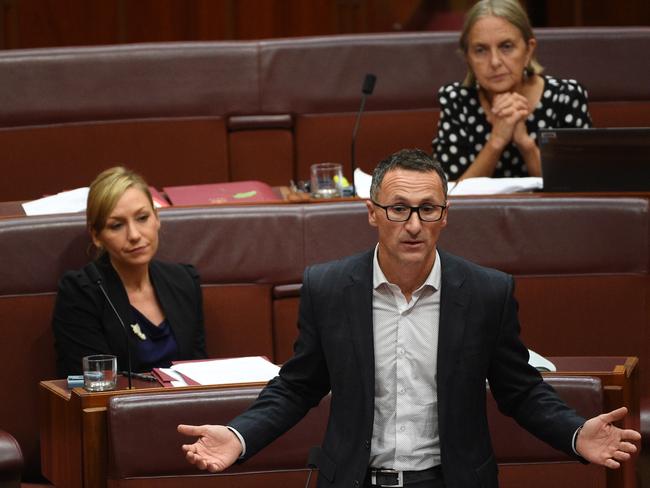
The government and the Greens, with independent Nick Xenophon, always had the numbers to ram through the legislation. The opposing sides blamed each other for the prolonged and unnecessary debate.
“The reason we’ve sat all night is because the Liberals and the Greens are forcing the situation,” Labor’s Stephen Conroy said.
“We moved on a number of occasions to adjourn the Senate so that we could come back at a reasonable hour this morning and it was voted down by the Greens and the government.
“So, we’ve got this incredible rush to pass legislation simply to facilitate Malcolm Turnbull calling an early double-D election.”
The government accused Labor of filibustering — speaking at length on distractions — although Senator Collins called this “quite inaccurate in my view”.
However, it was Labor that, towards the end, introduced unheralded amendments to change political donation laws, a move that could have prolonged the debate even further. This was aimed at embarrassing the Greens, who have demanded separate legislation to reduce donations.
“There is one reason and one reason only why Labor is moving these [donations] amendments,” Senator Cormann said.
“They are trying to make things as uncomfortable as possible for the Australian Greens to support this historic and this very important reform of the Senate electoral system.
“Some people in the Labor Party are desperate to ensure that the power to trade and direct preferences remains with backroom operators in political parties.
“There are some people in the Labor Party, and most of them here in the Senate, who just can’t fathom, can’t accept that what we should be doing is to empower the Australian people to determine what happens with their preferences.
“There are some people in the Labor Party who can’t fathom that the result of future Senate elections should truly reflect the will of the Australian people.”
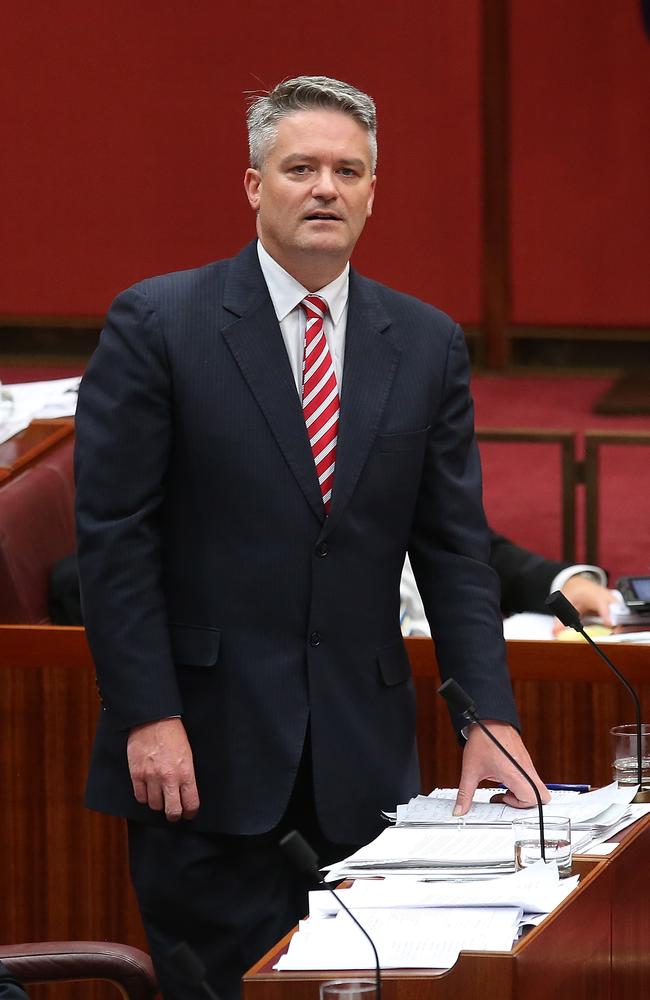
It was an unbecoming marathon on what had not long ago been a nonpartisan issue — how best to elect a senator.
They began this period yesterday and, as Australians woke for work today, were still talking.
The shambles was still under way at 6am and drowsy senators were battling sleep deprivation and the prospect of widespread condemnation from members of the public, who believe Parliament should be run better.
At issue overnight were nine amendments to the legislation aimed at giving voters greater control of the preference flow from their ballots for senators cast in federal elections.
By 6.24am, just four had been accepted when Senator Cormann moved that numbers five to nine be considered as a block.
No ground was given in what was dubbed #senatesleepover. A division was called whenever possible.
“Not game to shower yet in case the bells ring, but time to iron a shirt & be ready for the end of #SenateSleepover,” Education Minister Simon Birmingham tweeted.
The legislation was supported by the government and the Greens, and opposed by Labor and six of the eight micro-party crossbenchers, who fear they would be handing a big electoral advantage to the Coalition.
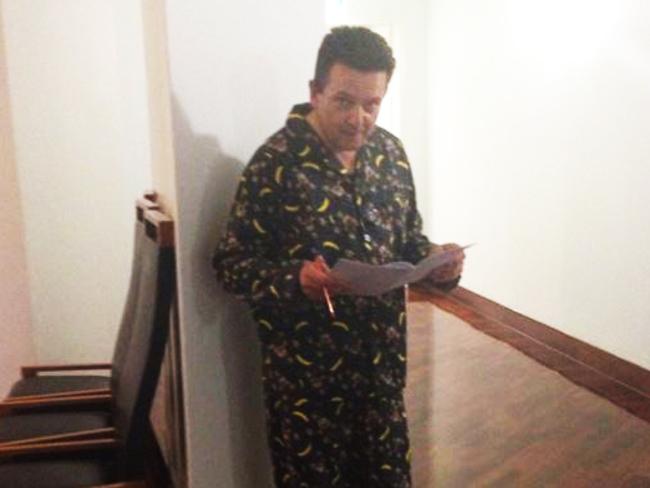
Labor’s filibustering was designed to fend off conclusive votes. They wanted the government to gag debate and use its numbers to force through the legislation.
This would weaken the moral legitimacy of the new laws and help Labor claim the legislation was a political device primarily intended to boost the Government vote in a double dissolution election.
Independent Nick Xenophon supported the legislation but also made clear his view on the extended sitting by turning up for a vote in his pyjamas. He was tossed out and told to change.
So Labor’s Doug Cameron quoted from Monty Python: “I fart in your general election.”
His colleague Stephen Conroy maintained a running commentary on a magazine fashion shoot by Greens leader and clothes horse Richard Di Natale.




